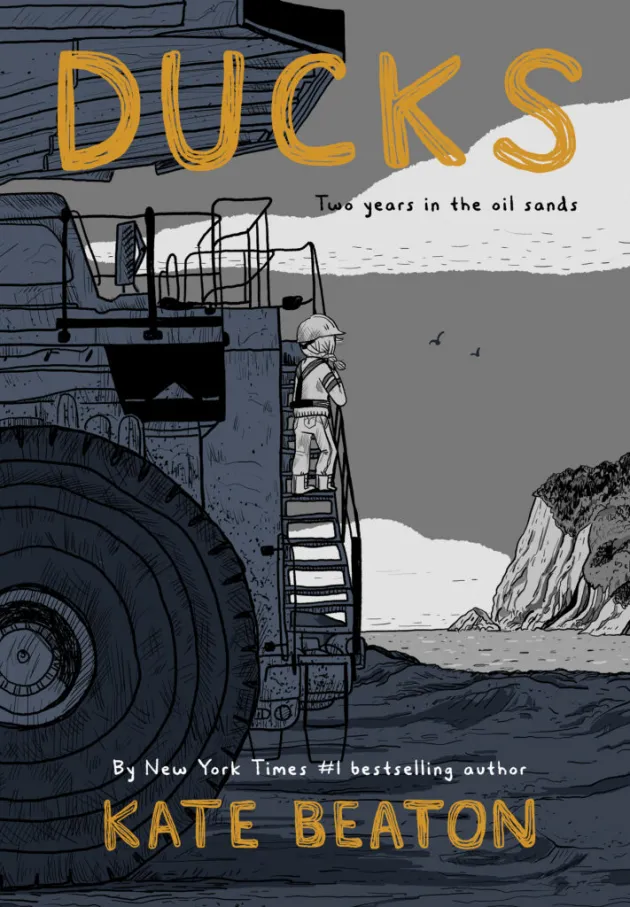Staff Pick: Ducks: Two Years in the Oil Sands by Kate Beaton
Published on 20th October 2025
Ducks is a challenging, thought-provoking memoir by cartoonist Kate Beaton. The autobiographical comic chronicles the time she spent working in the oil sands of Fort McMurray in northern Alberta in the mid- to late-2000s. Beaton, who is from Nova Scotia on Canada’s east coast, moves west to Alberta in order to save up money to pay off her substantial student debts. Many others from Canada’s Atlantic provinces of Newfoundland and Nova Scotia made the same journey when local industries such as fishing and mining were no longer an option. This story of economic migration will resonate with many readers.

As Beaton explains, despite the isolation and freezing temperatures, oil prices were booming and the high pay for work meant that the population of Fort McMurray was increasing rapidly. However, upon arrival at her first camp, she is taken aback by the lives of some of the men who live and work there. Drug and alcohol abuse is rampant but their behaviour towards women is what most shocks her. She suggests the ratio of men to women was 50:1 and this imbalance combined with the boredom and loneliness of the camp created an almost animalistic atmosphere.While working in the camps Beaton is consistently disrespected, belittled and objectified by some of her male colleagues. Although this bothers her, it is not until she is sexually assaulted that her mental health begins to deteriorate. She is deeply troubled by the questions of whether the camp and its conditions cause some of the men to act the way they do and if they remain changed even after the leave the camp.
While the memoir is most focused on questions of sexism, it also touches on the environmental harm to the local area and the impact on Indigenous (or First Nations) people who live beside these massive work sites. Their rivers are polluted, their fish (and ducks) are killed and their way of life is turned upside.
The book forces the reader to engage with two problems which Beaton herself is faced with throughout her story and never fully resolves. Firstly, despite the obvious environmental and social harms of the oil sands, Beaton acknowledges that the high pay offers an economic lifeline to her and many other Canadians. Secondly, while it’s never suggested that all men at the camp behave poorly, she is tormented by the idea that men in her own life such as her father, uncles and cousins could, if put in the same situation, behave the same way. By refusing to neatly tie up these loose ends, Beaton leaves the reader to wrestle with these same questions long after they have finished this brilliant memoir.
Borrow the book at your local library.
Submitted by Peadar.